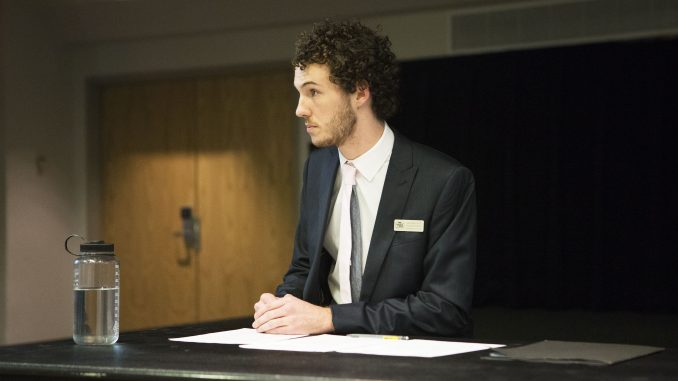
Parliament is planning conflict-resolution training after several disputes between members of Parliament that occurred earlier this month, members said.
Members of Parliament, Temple Student Government’s legislative branch, spent nearly two weeks attempting to impeach one another, The Temple News reported last week.
The only method of conflict resolution outlined in the constitution is for settling disputes with the Parliamentarian. With limited options, Parliament members have resorted to impeachment to end conflicts.
Parliamentarian Jacob Kurtz and Speaker Bridget Warlea are working with the Conflict Education Resource Team, a department that trains student organizations in conflict management and resolution. They will also schedule inclusivity training with the Office of Institutional Diversity, Equity, Advocacy and Leadership, Warlea said.
These training sessions are expected to be scheduled in early December, Kurtz said.
“The hope is that it helps smooth over some of the rifts that may be present in the body,” he added. “There may have been some that may have been present before these recent events.”
Sarah Kim, a former Parliament representative and a CERT Peer Educator, led a conflict resolution workshop last semester in which representatives talked about teamwork and how to avoid taking disagreements personally, Kurtz said.
Warlea has been planning conflict resolution and inclusivity training since she took on the role at the end of September so Parliament members can be more prepared to deal with each other, she added.
Kurtz chose not to mediate the most recent conflicts among members because the conflicts involved Shakeel Alibhai, the former College of Science and Technology representative who resigned from his seat earlier this month. Alibhai had also tried to impeach Kurtz, which Kurtz felt mediating would be a conflict of interest.
Alibhai filed to impeach Kurtz because he felt he was unfit to be Parliamentarian. Before this, 11 other members filed to impeach Alibhai, citing problems with Alibhai’s proposed resolutions and constitutional amendments, said Luke Tomczuk, the Disability Resources and Services representative. Alibhai then filed to impeach several other members of Parliament.
Because Kurtz could not address the various disputes, Auditor General Morrease Leftwich was responsible for addressing the conflict, but did not get involved before Alibhai resigned.
“[Leftwich’s involvement] might have happened, but it was becoming very time-consuming,” Alibhai said. “I didn’t do anything wrong, but I decided to resign because it was simply taking too much time.”
Warlea knew about the members’ issues with Alibhai but chose not to take any formal action, she said.
“As Speaker, I try to make myself available to everybody in seeking guidance, maybe connecting people with where they need to go, but I did respect Jacob and Morrease and their roles,” she added. “In the meantime, I was trying to look deeper into ways of mediating this issue so it doesn’t come up again.”
Warlea said she hopes conflict-resolution training and making the purpose of impeachment — which is to remove members who are not fulfilling their duties — more clear will prevent further disagreements between members, she added.
Kurtz and Warlea want to be “preemptive” when helping Parliament members learn how to better interact, Kurtz said.
“It probably would have been better if [conflict resolution training] had been done sooner,” he added. “But you live and you learn, so we learned.”


Be the first to comment